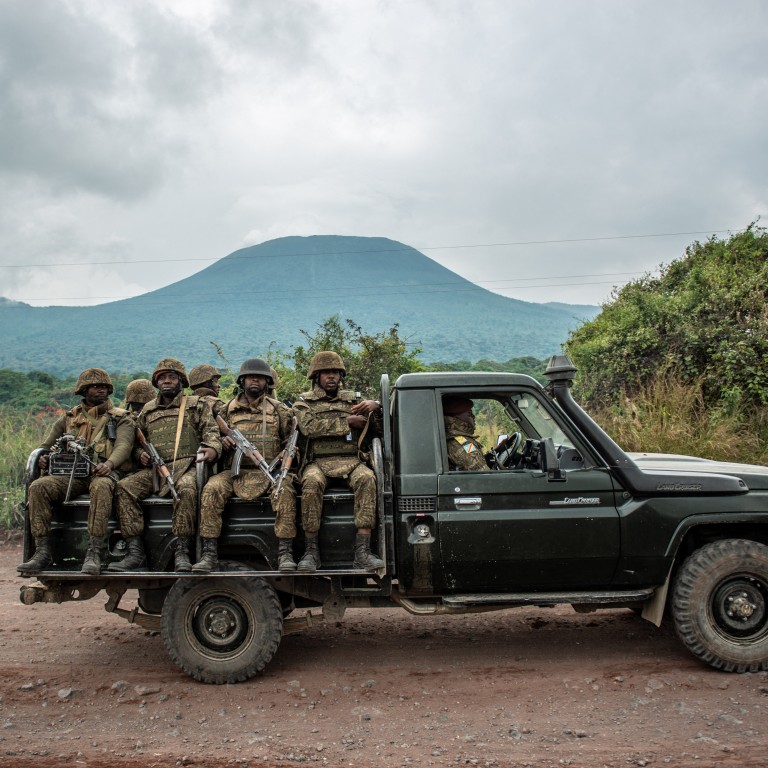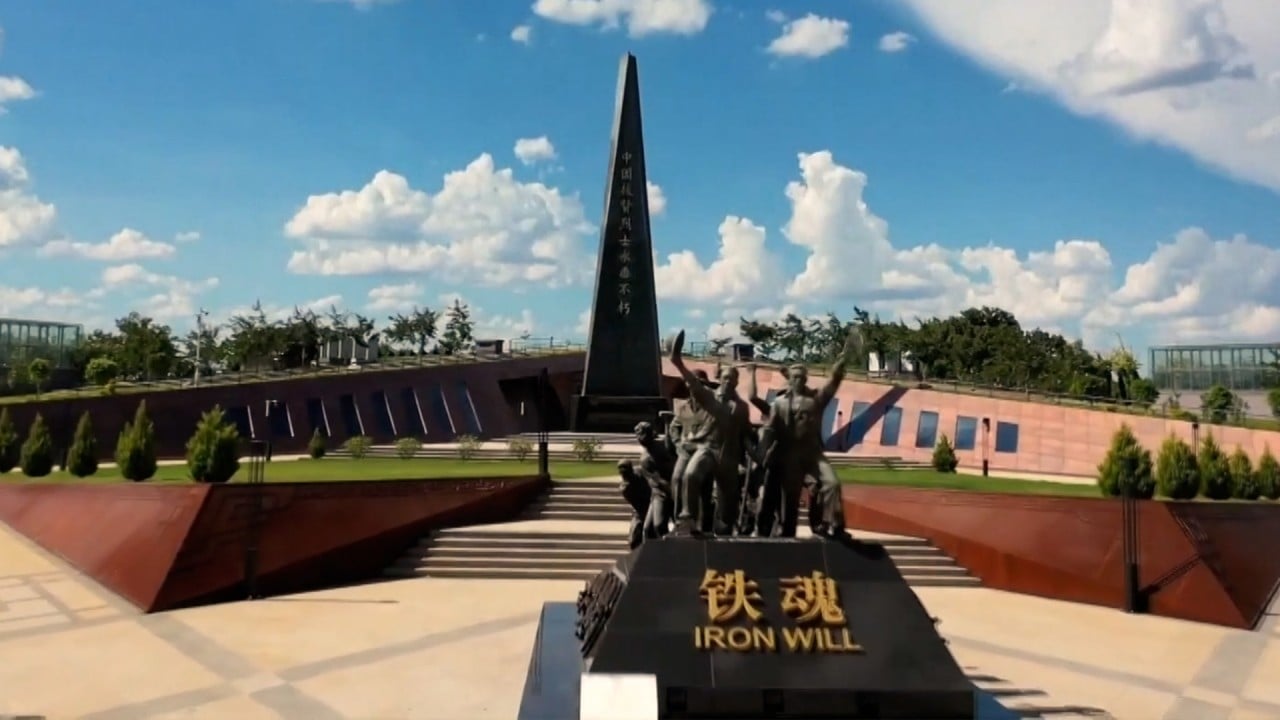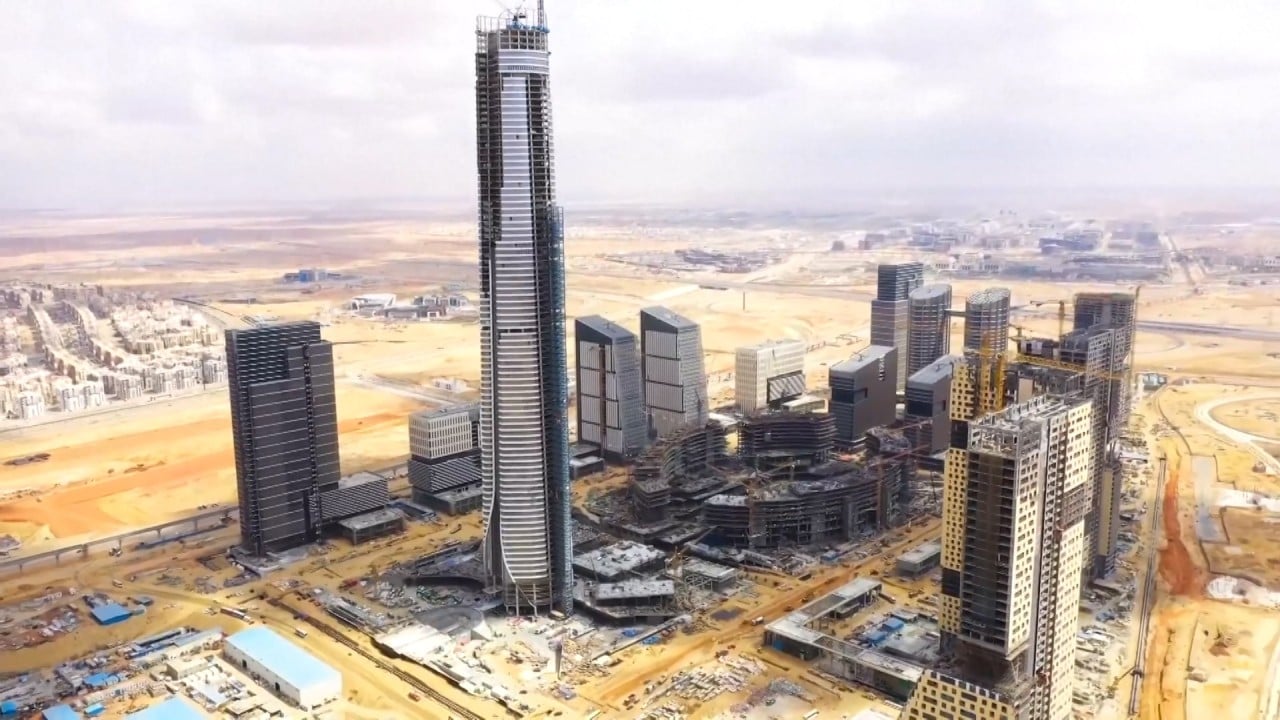
As African countries pivot, China seizes chance to become a major military player
- Experts say China’s military engagement with African countries has become more complex and extensive as it deepens ties, expands influence
- China is increasing its market share of weapons sales and technical support in Africa as Russia, Western countries face new challenges
At a meeting of Chinese embassy officials and business representatives with immigration and security officials of the Democratic Republic of the Congo (DRC) earlier this month, one of the main topics was the safety of Chinese citizens and enterprises in the country.
Wang Hailong, the embassy’s charge d’affaires, said “China is highly concerned” about the security situation in eastern and southeastern regions of the country.
“Since the beginning of this year, a number of Chinese companies and several Chinese citizens have suffered from vicious incidents such as kidnapping, armed robbery and burglary, causing casualties and property losses,” Wang said in a statement released after the September 9 meeting. “Only when security is guaranteed, can China and Congo’s mutually beneficial cooperation be carried out smoothly.”
A day earlier, Wang and the embassy’s military attaché met Gilbert Kabanda Kurhenga, the DRC’s minister of defence, to discuss possible Chinese support for the development of the DRC’s military.
Chinese companies have massive investments in the country’s mining industry, especially in copper and cobalt, and Beijing wants those investments – and its citizens – protected.
Amid disenchantment with long-standing Western military activity in Africa, more countries like the DRC are looking to build defence ties with China and Russia.
France, for example, has recently ended its operations in Mali and the Sahel region. In its place, the Kremlin-linked Wagner mercenary group has begun to fill the void. Under former US president Donald Trump, Washington reduced security activities in West Africa and Somalia, though the Biden administration has tried to reverse some of those decisions. China, meanwhile, has been working to fill those gaps.
Under its non-interference policy, China has kept its troops out of direct involvement in African conflicts. However, China is one of the biggest contributors to United Nations peacekeeping missions in countries like the DRC, and China has deployed its forces in counter-piracy missions.
Chinese provinces race along Xi’s ‘green lanes’ to Africa
Last month, at a virtual meeting of the Forum on China-Africa Cooperation (FOCAC), Wang Yi, China’s foreign minister, said Beijing had continued to provide military aid and police equipment to several African countries.
Since the forum was established in 2000, China’s military engagement with African countries has become more complex and extensive, observers say.
According to Paul Nantulya, a research associate at the Africa Centre for Strategic Studies at the National Defence University in Washington, China wants to increase market share in weapons sales, and is providing technical support for the development of military industries.
The two are “particularly significant given that African countries’ access to Russian export credits, and weaponry, and weapons systems is likely to decrease given the sanctions that have been levied on Russia’s military industries”, he said.
China’s State Administration for Science, Technology, and Industry for National Defence now has relationships with 40 African countries, according to Nantulya, and some of its top defence firms, like China North Industries Cooperation, are major players in Africa’s arms industries.
Nantulya said China wanted assured and unfettered access to key African officials who could make decisions that were favourable to enhancing and protecting Chinese strategic interests, and perhaps even prioritise them.
“China continues to be averse to deploying soldiers in larger numbers and outside multilateral mandates such as peacekeeping, despite its expanding interests,” said Nantulya.
“The reasoning here is: if partners can share, or at least understand China’s ideological and doctrinal perspectives, they can be more amenable to its interests,” Nantulya said.
That is why the relationship-building elements of Chinese military engagement, such as military education, exchange visits, mentoring, and party-to-party work, occur more often than military exercises.
Nantulya said that between 2003 and 2019, China conducted 294 interactions with African militaries. Of those, the vast majority (259) consisted of various types of exchanges and education. Over the same period, China conducted only 13 military exercises and 22 naval port calls.
“It is often a complement to, and a competitor of, Russian or Western military equipment provided to the continent,” he said.
Cabestan said Beijing was still behind the US, Russia and France in Africa since Chinese weapons represented only 17 per cent of Africa’s arms imports. But several countries had bought frigates, coastguard vessels, artillery, training planes and helicopters from China.
Luke Patey, a senior researcher at the Danish Institute for International Studies, said Russia has traditionally been Africa’s leading arms supplier alongside the US and France.
“But China has been playing catch up. Since Russia’s invasion of Ukraine will challenge its capabilities to play that role in the coming years, it opens room for Chinese military equipment and arms suppliers to increase their stakes even more,” Patey said.
In the DRC, increased military cooperation may have the bonus for Beijing of easing concerns over China’s economic dominance in mining and other strategic sectors, according to Patey.
Benjamin Barton, associate professor at the University of Nottingham’s Malaysia campus, said that since the FOCAC summits began generating momentum, the People’s Liberation Army (PLA) had slowly but surely been establishing potent bonds with high-ranking personnel among the militaries of various African states.
“It wants to optimally position the PLAN [People’s Liberation Army Navy] to respond to ad hoc requests for training and better position the PLAN to help protect Chinese citizens and investments in Africa,” Barton said.
According to Barton, one example is the construction of the Chinese-built military training centre in Tanzania in 2018. “Collaborating on such projects allows the PLA to exert a degree of influence over infrastructure, which shapes the type and quality of training provided to the Tanzania People’s Defence Force. In so doing, it also allows the PLA to collect precious intelligence relative to the art of warfare which feeds back into its own combat philosophies, even if only to a very minimal extent,” Barton said.
Under the new FOCAC commitments, China would undertake 10 peace and security help projects for Africa, Zhou said.
The projects aim to support African capacity building and fill the gap between the mandate and the capacities of African countries. “I think the main activities will focus on soft capacity building, such as cooperation on military education, training, logistic support, and military medicine,” Zhou said. He said Chinese peace philosophy was that security problems can only be solved through political dialogue and development investment.



